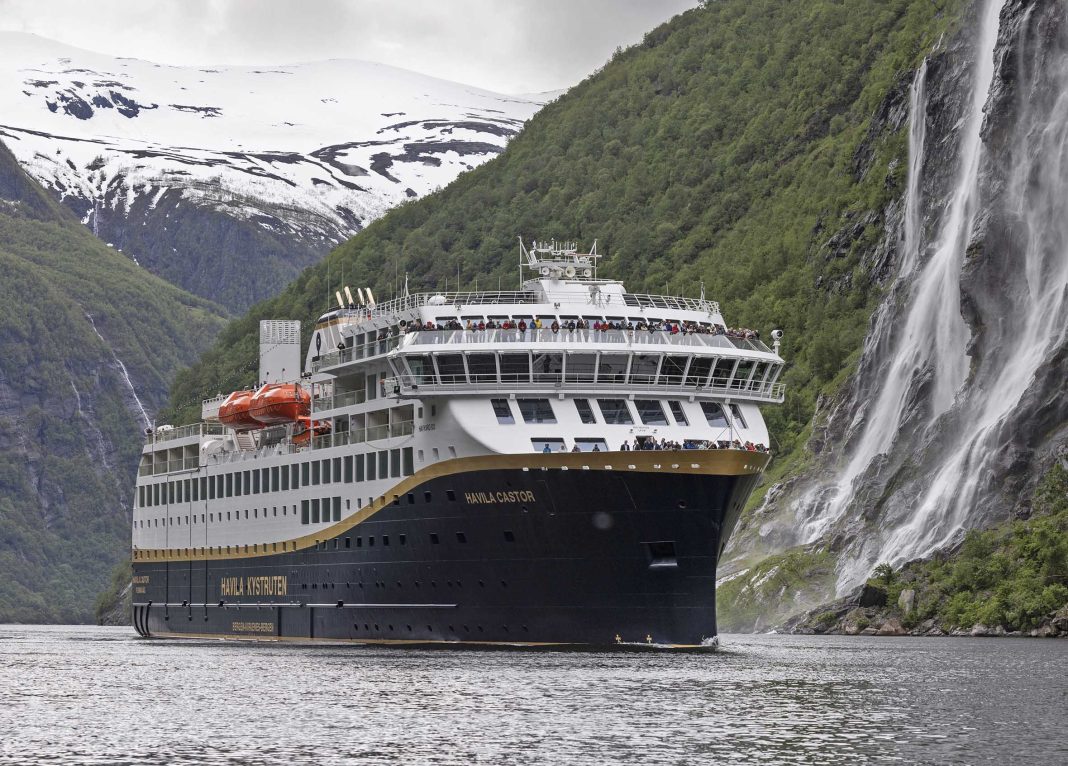Havila Voyages has launched its first ever sustainability and human rights report. The report highlights the company’s goals of carbon neutrality by 2028 and for an emission-free coastal route by 2030 – all achievable with the current fleet.
Havila Voyages is actively working to reduce emissions and meet future environmental requirements.
“Last year, we made history as the world’s first cruise company to sail into the Geirangerfjord UNESCO World Heritage Site emission-free and silently, four years before the Norwegian government’s requirement for emission-free ferries and ships in the World Heritage areas comes into effect,” says CEO Bent Martini.
“This is clear proof of our ambitions. We look forward to continuing our journey and doing our part to make tourism and shipping more sustainable”, as Havila Voyages intends to become both carbon-neutral and achieve zero emissions.
“It starts with gradually replacing natural gas with biogas, and the goal is to be carbon-neutral by 2028. After that, we will switch to emission-free fuel alternatives such as hydrogen, and the goal is zero emissions by 2030 – with the ships we have today,” he says.
Another goal set by Havila Voyages was to reduce onboard food waste and produce only 75 grams of food waste per person per day. The company’s food concept includes serving all meals à la carte and using locally sourced and short-travelled ingredients.
“Meeting our target of 75 grams of food waste across four fully operational ships, means we can reduce food waste by 60 tons per year, by not using buffets”, says Martini.
“It is therefore very gratifying to report that this year we successfully achieved our goal and collect only 71 grams of food waste per person per day on board.”
In addition, Havila Kystruten can report a high degree of waste sorting and effective circular use of resources on its ships.
Havila Voyages’ ships, which include battery packs that enable emission-free and silent operation for four hours at a time, are the most environmentally friendly vessels to have ever sailed the historic coastal route Bergen-Kirkenes-Bergen.
With current operations, CO2 emissions are reduced by 35-40%, and local emissions such as NOx and SOx are reduced by over 90%, compared to equivalent ships using traditional fossil fuels.


